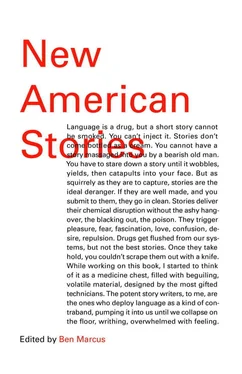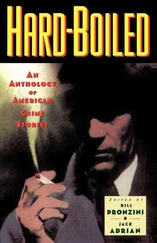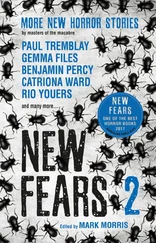With the cradle finally assembled, we saw that it would indeed move more rock, that neither of us had accounted for just how much rock it was capable of moving. The problem, however, was that the cradle required constant rocking in order for the gold to be captured in the riffles while worthless sediment passed them by. For a day we tested different arrangements. First we had Errol rocking away while I attempted simultaneously to dig the pay dirt, scoop it into the hopper and pour river water over the sediment so that its finer particles might be strained through the canvas apron. Inevitably I would run out of either sediment or water and have to fetch some more, at which point the slurry would stop streaming and our momentum would be lost. The cradle, ingenious a device as it was, depended on a steadier rocking-and-pouring than we two alone could maintain.
Errol, seeing the imperfection of our new method, became frequently agitated, and would often curse me, take the shovel from my hand and push me to the handle. Attempting to man both the shovel and the bucket on his own, Errol would see quickly what I saw: our operation was a man short.
“This won’t do,” he said finally. “We’re just rinsing the soil.”
I nodded.
“We need more hands,” he said.
I might have made that observation twelve long and fruitless hours earlier, were I not sure he would smash up all our hard work in a fit. “What about the Chinamen?” I said.
Errol shook his head. “I won’t split with them.”
“And what’s our choice? Split nothing fifty-fifty. Fifty-fifty salt pork and gruel? Fifty-fifty sleeping on the ground?” I cast my shovel to the ground. Now I was agitated, and from the corner of my eye I saw the elder Chinaman pause. “Do you know what we owe that Swede?”
Errol returned me the shovel. “You don’t become a man of society by keeping quarters with Orientals.”
When we rose in the morning the diggings were deserted. I trudged sleepily up and down the bank in my long johns. The place had gone a ghost town. Upriver each claim was abandoned, pans half sifted, the wooden handles of shovels jutting like masts from where their heads had been thrust into the soil. Downriver was the same, except for the Chinamen, who worked on same as ever. I approached the father, aware that Errol was following.
“Where’s everyone gone?” I said. I pointed to the manless claims. “Where are they?” The Chinaman began to speak in the tong language, which I had never heard. The sound was most bizarre and impenetrable.
Errol interrupted him. “Has there been a strike?” he said loudly.
The Chinaman pressed his lips together, then began to speak again, slowly. And again, the language was entirely incomprehensible.
“A strike! A strike!” shouted Errol, hopping and flailing his arms in the general direction of the mountains. “Has there been a strike, you old fool?”
“No strike,” came a clear, effeminate voice beyond the commotion. We turned to see the boy standing on the banks, holding his pan of woven straw. “He say, ‘A coach. In the night.’ ”
We stared like idiots.
“Mail,” the boy said.
Errol took off.
“Thank you,” I said to the boy. “You know ‘thank you’?”
“Yes,” he said.
I dressed and followed Errol along the trail to Angel’s Camp. Out front of the Swede’s a monstrous crowd had gathered around a stagecoach. There were men in numbers I had never seen, hundreds of men not only from our fork of the American but from all of Calaveras County. They were the roughest specimens I have ever seen, and nearly every one of them brandished a revolver or a musket.
The driver of the coach had climbed atop the cab and was arbitrating the rowdy crowd from that position. In his hands he clutched a distressingly small bundle of letters. Errol attempted to pry his way to the heart of the crowd. He pushed between men, struggling to get within shouting distance of the coach. Surely without thinking he shouldered past a ruffian at least half a rod tall with a beard grown down to his chest. The man — a Southerner — informed Errol that he had occupied that spot since before sunup and that he was unlikely to forfeit it to Errol or to anyone. For proof he showed Errol his Bowie knife.
It was then that we noticed that from the mob grew a tail of men. There were too many men to approach the coach at once, and we weaklings had been dispatched to wait in line. We followed this tail through town and out of it, finding its end finally in the woods, behind two Mexicans.
We stood in line for half a day. By the time we came back in view of the coach, emotions had reached the breaking point. Full-grown rough-and-tumbles shouted their names up to the driver and trembled while he searched his bunch. Men who had no letter waiting — and these were the majority — cursed their wives or friends or family for forgetting them. Some desperate fellows offered the coachman flakes in exchange for a missive, as if one might be conjured for the right price. But this was the one place in California where color held no sway.
Very occasionally I watched the coachman pluck a dirty, tattered envelope from his stack and hand it down. The coarse men nearest the coach took the letter as delicately as they might a baby and passed it among them until it reached its rightful owner. As the lucky man opened the letter the others moved away, as if to make room for his reading.
As we neared the coach we spotted the Southern ruffian sitting on a log, holding a letter gingerly between his massive hands. His beard was wet with tears. “Happy devil,” Errol said.
By the time Errol and I approached, the deliveryman’s bundle had become terribly thin.
“Boyle,” Errol shouted, although it was not quite our turn. “Letter for Boyle?”
The coachman, who had by now taken a seat on the edge of the cab roof, searched his skinny bundle. It did not take long. “No letter,” he said.
“You’re sure?” said Errol. But the man had already solicited the next eager miner.
“Please, sir,” I called out. “Check again. The name’s Boyle. Errol. Or Joshua.”
The coachman did check again, God bless him. “Apologies, my boy. Maybe next time.”
I set out in the direction of the river. Errol did not follow me. When I turned, he was standing in the middle of Main Street, which at the time was nothing more than a dirt thoroughfare. His face was blank and he stared at the ground between us. His hands were upturned queerly, as though he carried a burden I could not see.
“Suppose I’ll stay in town a bit,” he said.
“And do what?” I said. But he was already shuffling toward the tavern.
“Forget her,” I called. “She puts on airs.”
He came at me swinging to heaven, and struck me once upside the head with a tight, demonic fist. I collapsed, hiding my head beneath my arms. I thought he would strike me again where I lay, but instead he said only, “Don’t.”
IX. BEASTS OF THE TERRITORY
I panned our claim halfheartedly and alone for what remained of that day, palming secretly the tender knob on my skull. By dusk Errol had not returned. I watched the sunset, gnawing on a rind of salt pork and listening to the heartsick yowls of drunken Forty-Niners. Errol was somewhere among them, I knew, blubbering about Marjorie. I cursed him. How my body complained, how my stomach wanted, how close we had both come to death how many times so he might win the good favor of a girl whose father owned a stinking soap factory!
I found his pitiful notching stick and snapped it, then snapped it again. I threw the pieces into the fire. I learned from the diggings that a love of destruction is in every man’s heart, somewhere.
Читать дальше










![Женя Джентбаев - neo futura [stories]](/books/692472/zhenya-dzhentbaev-neo-futura-stories-thumb.webp)

